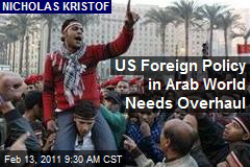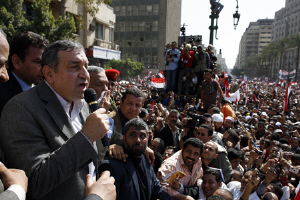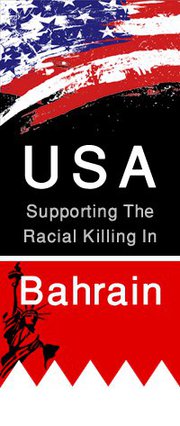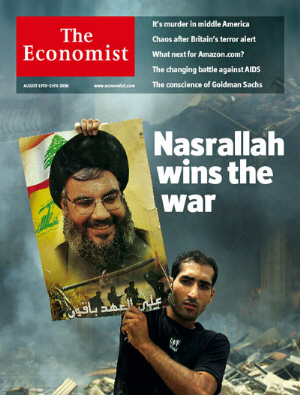Al-Manar Website interviews Michael Maloof, a former Pentagon official, who unfold the real intentions of US, Zionist entity.

Amid changes in the region Al-Manar Website interviewed Michael Malouf, a former Pentagon official from Virginia who clarified the real US democracy towards the Arab world and Israel's objectives in Lebanon and the region.
Q: Where do you see the Middle East going?
Michael Maloof: I see the Middle East turning from an “Arab Spring” to an “Islamic Awakening” by the people of the Middle East and North Africa seeking more self-determination, equal rights, reform and democracy but done without the continuing interference from the western countries which have supported the autocratic regimes that have prevented the people from realizing these goals.
What also has emerged is an isolation of “Israel” which seeks to grab as much land as it can with the effect of further repressing the Palestinians and keeping them from returning to their own homeland. Unfortunately, the United States continues to support “Israel’s” actions.
 Egypt Leadership to Come Needs to be Organized
Egypt Leadership to Come Needs to be Organized
However, what once was a promising effort for true change has begun to settle back to the old alignments such as in Bahrain and Saudi Arabia and possibly in Egypt where remnants of the old regime of ousted President Hosni Mubarak remain. In Egypt, while only time will tell, I am cautiously optimistic that the people will realize their goals with elections, but whatever leadership based on their decision emerges will need to be organized enough to help people realize the aspirations which brought them to power in the first place.
Democracy in US Increasingly Ineffective
The democracy which evolves from the Arab Spring does not need to mimic the type of democracy seen in the United States. Democracy as practiced in the U.S. has become increasingly ineffective in which decisions can no longer be made and the country has become hostage to Tel Aviv dictating U.S. foreign policy at the executive and legislative branches of government. Genuine reforms and recognition of personal freedoms need to emerge from the autocratic rule in Egypt, Tunisia and hopefully in Yemen and Bahrain as well as Saudi Arabia.
 Saudi Regime Remains Oppressive
Saudi Regime Remains Oppressive
In the Saudi kingdom, there has been a nod in recent days toward token reforms that people have been seeking but by large the regime remains oppressive and unfortunately it continues to have U.S. support. This makes for a toxic arrangement in which Riyadh will persist to undermine the governments of Lebanon and Syria with virtual impunity.
Preservation of Regimes Like in Bahrain and S. Arabia Will Aid US, Israel
What also remains disturbing is continued U.S. support for regimes such as those in Bahrain and Saudi Arabia while paying lip service to the principles of democracy. For example, the U.S. remains relatively silent on the oppression the Bahraini regime is inflicting on innocent people and sentencing innocent doctors to years of imprisonment for providing first aid to anyone in need of urgent medical assistance. The preservation of these regimes will continue to aid U.S. and Israeli interests to the detriment of the people not only in those countries but the region.
Syria Needs Reforms Away from West Interference
Syria needs to institute long-sought reforms while working with other countries, including Iran and Turkey, without interference from the former colonial powers from the West, as well as the United States.
Bottom line is that people in the Middle East and North Africa are off to a good start but need to continue pressing forward to achieve the reforms they have long sought and achieve those goals without outside interference.
Q: How do you think Israel will handle the new “challenges” including the developing situation at the border with Egypt in the south, Hezbollah to the north, a military alert on the Syrian side of the Golan Heights, and angry Palestinians in the West Bank and Gaza?
Israel Invokes Hitler’s “Lebensraum”, Will Use “Terrorist” Card to Reoccupy Sinai
Michael Maloof: “Israel” has a goal of acquiring as much land for itself as it can, based on some misguided historical notion that the Jews are God’s only chosen people and only they have a right to exist on lands which constitute Palestine today. In recent weeks, at least one Zionist columnist from the Haaretz newspaper has invoked the outrageous slogan of Adolf Hitler’s Third Reich of “Lebensraum,” a euphemism to acquire as much territory for itself while subjugating those living there to outrageous mistreatment and discrimination and poor living conditions which we see today not only inside “Israel” but also in the other occupied Palestinian areas of the West Bank and Gaza Strip.
Israel Isolating Itself by Losing Battle of World Public Opinion
The “Israeli” leadership in recent weeks realized its increasing isolation and has been making public pronouncements of increasing threats especially from the Sinai Peninsula. I believe the “Israelis” will use the “terrorist” card as a basis to reoccupy the Sinai, an area which is three times the size of occupied Palestine today. The “Israelis” really haven’t helped themselves by their recent action in continuing settlements on the West Bank, knowing that the Palestinian Authority will refuse to resume discussions until such construction has been halted. In spite of condemnation from the United States and the European Union to the most recent announcement of further construction, the Israelis are continuing with it while paying lip service to wanting to engage in peace talks. The “Israelis” know they will have Jewish backing especially in the United States and know the West won’t impose pressure such as cutting off assistance to enforce their demands that “Israel” halt the construction. In effect, the “Israelis” really aren’t interested in coming to a resolution and certainly don’t want a separate state of Palestine, since it encompasses the very areas where they want to expand. If the “Israelis” continue on their “Lebensraum” program, they will have taken virtually all the area that the Palestinians want for creating a new nation. In effect, the “Israelis” are isolating themselves not only with their neighbors who are getting fed up with these actions but are losing the battle of world public opinion for fighting against virtually defenseless people on the West Bank and bombing indiscriminately in the Gaza Strip.
 Israel Seeking to Provoke Hezbollah To Justify Attack
Israel Seeking to Provoke Hezbollah To Justify Attack
What justification is there for destroying the livelihood of innocent Palestinians by burning their olive trees or tearing down homes they’ve lived in for generations? The reason is, because they can do it as long as there is no armed resistance to it. And now they know they can get away with it judging from the mute response of the international community. Yet, the “Israelis” thrive off of paranoia. They need a near constant crisis to continue getting the billions of dollars every year from the United States and therefore need to create an enemy to justify that paranoia. While Hezbollah and Hamas refuse to recognize “Israel” as a country or a Jewish state, the “Israelis” equate that lack of recognition with these groups wanting to destroy “Israel.”
For that reason, the “Israelis” for more than a year have mounted a major provocation campaign to get either Hizballah or Hamas to attack them as a justification for launching attacks against them and seeking their destruction. Hezbollah has made it clear that it won’t attack Israel unless Lebanon is attacked. In an effort to force Hizballah’s hand, the “Israelis” set up Hizballah for the trumped up charge of being involved in the assassination of the late Lebanese Prime Minister Rafiq Hariri and then manipulating evidence to make it appear that members of Hizballah committed the act. And the United States and the other western governments went along with it. Even “Israeli” President Shimon Peres has tried to provoke action against Hizballah by claiming that it was smuggling Scud ballistic missiles from Syria into Lebanon, which wasn’t true. To further any provocation, the “Israelis” will continue to drill in waters in the eastern Mediterranean which clearly belong to Lebanon, further settlement construction in the West Bank and East Jerusalem, bomb the Gaza Strip when it wants against virtually defenseless people or warn of continued terrorist attacks to be used as a basis to reoccupy the Sinai Peninsula where there are considerable oil and natural gas reserves that could make “Israel” energy independent indefinitely.
The territorial, economic and commercial motives are there, but the “Israelis” will drape themselves in the cloak of righteousness of always portraying themselves as the victim. It is tedious at best but dangerous at worst because the “Israelis’ are on a hair trigger to launch an attack. And the Western powers let them continue getting away with it. Perhaps for a change international sanctions need to be imposed on “Israel” until they halt these impediments to peace.
 Q: There have been some analyses pointing at a possible “secret war” that has begun mainly in Syria, involving pro-Syrian services and Western agencies. Elite scientists have become targets in Syria lately, do you think that the US would prefer to target Assad’s regime with Intel tools rather than a military strike with the aid of Turkey and the NATO; a very risky option for the US and Europe at this time of economic disasters and the fading out of a key European player, Nicholas Sarkozy?
Q: There have been some analyses pointing at a possible “secret war” that has begun mainly in Syria, involving pro-Syrian services and Western agencies. Elite scientists have become targets in Syria lately, do you think that the US would prefer to target Assad’s regime with Intel tools rather than a military strike with the aid of Turkey and the NATO; a very risky option for the US and Europe at this time of economic disasters and the fading out of a key European player, Nicholas Sarkozy?
Michael Maloof: I don’t see the United States engaging in an overt military campaign against the Syrian regime of President Bashar al-Assad. There are a number of geopolitical reasons for not doing that but there also is the question of having the resources to do so. In the West, there also is a serious question of what governance and stability the Syrian opposition could bring. In Afghanistan and Iraq, we have seen a succession of political and economic turmoil that followed U.S. action at these locations, and to what end? There also is another consideration: Russia now maintains major bases at the port cities of Tartous and Latakiyah which also can act as a deterrent against any overt attack against Syria.
With Vladimir Putin becoming president of Russia next year, the United States and indeed “Israel” will be reluctant to mount a military attack on Syria. At the same time, even Iran and the Russians are calling on al-Assad to launch reforms to stave off further internal turmoil in the country. While I don’t see an overt military effort for regime change in Syria, I think there will be covert undertakings by the West to support groups that will attempt to bring continued instability to Syria from constant demonstrations. This will then help generate an international outcry for action. It will be a western-orchestrated initiative, principally at the hands of the United States and Saudi Arabia, to oust al-Assad without any consideration of what would be put in its place.
Concern remains, for example, that the Saudis are instigating the Syrian Muslim Brotherhood to incite demonstrations and create turmoil leading to al-Assad’s ouster. As part of the covert campaign to undermine the Syrian regime internally, there will be efforts to target such people as scientists or even leaders, much the same way we’ve seen covert intelligence strikes by “Israel” and the United States against nuclear scientists in Iran. I believe it will be important for the countries of the region to outwardly reject western “help” and determine their own destiny. I believe that Turkey and Iran have seen the direction of where events in the Middle East are heading and want to undertake a constructive effort to reshape the future of the region. This will mean all countries involved will need to undertake the reforms that people so desperately need on the one hand while doing it with a minimum of Western interference. The West can help but not continue to control events for its own selfish purposes as it has been doing for generations in the region.
 Q: What is the strategic objective that the US and its allies in the West are trying to fulfill by seeking to topple President Bashar Assad? Is it Hezbollah, Iran, China, Russia, or all of the above?
Q: What is the strategic objective that the US and its allies in the West are trying to fulfill by seeking to topple President Bashar Assad? Is it Hezbollah, Iran, China, Russia, or all of the above?
Michael Maloof: The U.S. purpose of seeing the ouster of the al-Assad regime in Syria would be to placate Saudi Arabia against what both the U.S. and the Saudi kingdom see as the growing influence of Iran in the Arab world. In that way, the United States hopes to maintain its dwindling influence in the Middle East with the predominantly Sunni Arab countries which follow Saudi Arabia’s lead. However, I think any such notion of an attack by the U.S. and its NATO partners would be a disaster. Such an attack also will commit Iran, Hizballah and Hamas. While the Russians openly are warning that NATO is planning an attack on Syria, they and the Chinese certainly oppose such a move and are strongly advising the U.S. not to take military action.
US Will Have Second Thoughts When it Comes to Attacking Syria
It is apparent that the U.S. wants al-Assad removed but, like decisions made in the past such as invading Iraq which ultimately was a disaster for the U.S., an invasion of Syria certainly won’t be in the best interest of the U.S. either. Despite the western clamor for NATO to attack Syria like it did in Libya, I think the U.S. will have second thoughts. First is its current severe economic condition. In addition, Russia has considerable military and economic interests with Iran and Syria. Considering Russia’s position on Syria and the prospect that Iran could get involved, any attack on Syria could bring in members of the Russian-led Shanghai Cooperation Organization, to which Tehran sits as an observer. Also, there is a desire by the “Israelis” to attack Iran’s nuclear enrichment program. I believe that any attack on Iran as well will invoke a similar response and involve Hizballah, Hamas and Syria in addition to Russia and possibly China. While the Russians are warning about NATO preparations to attack Syria, such an initiative will require a United Nations Security Council resolution which Russia and China certainly will veto. However, as with Iraq, the U.S., France and Britain conceivably could construct a “coalition of the willing” to bypass the U.N. knowing of Russian and Chinese opposition and launch a military strike. But, the damaging effects will be the same.
Q: Do you see a close end to the war in Libya and an imminent formation of a new government, and do you think this country of 120 tribes is heading towards federalism? Why?
Michael Maloof: While the National Transitional Council has begun the process of forming a government, I don’t see it coming together imminently. Indeed, Mu’ammar Qaddafi himself still hasn’t been captured, so he’s in a position to instigate guerrilla warfare on the weak government indefinitely unless captured. Also keep in mind that the anti-Qaddafi forces don’t control all of Libya. At the same time, despite the military mission of NATO in Libya, the outcome remains murky and there remains the question of just how long NATO can remain committed. Libya’s challenge now is to come up with a government that will represent all the tribes, clans and factions without resorting to internal fighting and chaos, which is more likely than not. I’m also concerned over persistent reports of reprisals, blatant racism against black Libyans and torture and indiscriminate killings that are being exhibited by anti-Qaddafi forces as they head further south into the country. This activity by anti-Qaddafi forces will only build resentment and foster greater resistance, despite the NTC’s best intentions.
|
- Michael Maloof is a former US Senate and Pentagon official. He worked as correspondent between 1974 till 1982 for The Detroit News, U.S. News & World Report and The Union Leader (NH) respectively. |
